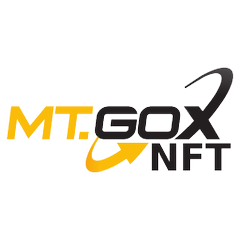Weekly Report | Trump found guilty, all 34 felony charges upheld; Vitalik shares his views on the Bitcoin block size debate, supporting the "big block" side; Bitdeer completes $150 million in private financing
Organizer: Luan Peng, ChainCatcher
"What important events occurred this week (5.27-6.2)"
1. Trump found guilty, all 34 felony charges upheld
According to ChainCatcher and reports from Caixin, a jury in New York ruled on May 30 local time that all 34 felony charges of falsifying business records against former President Trump in the "hush money" case were upheld.
The New York State Attorney General accused Trump of directing Cohen to pay $130,000 in hush money to adult film star Daniels (real name Stephanie Clifford) during his 2016 presidential campaign to prevent her from claiming that a scandal involving an affair with Trump in 2006 would affect the election.
Trump subsequently falsified business records to reimburse Cohen in installments under the guise of "legal fees," in an effort to cover up his violations of New York state and federal election laws. According to previous reports, the jury had to reach a unanimous decision in this case.
(Source link)
2. Vitalik shares views on Bitcoin block size debate, supports "big block" side
ChainCatcher reports that after reading two books on the Bitcoin block size debate from the 2010s, "The Blocksize War" and "Hijacking Bitcoin," Vitalik expressed some of his thoughts on the issue. Vitalik stated that during his personal experience with the Bitcoin block size debate, he typically sided with the big block proponents, with his sympathy for them focusing on several key points:
- One of Bitcoin's original key promises was digital cash, and high fees could stifle this use case.
- He does not believe the "meta-level" narrative from the small block side.
- The SegWit proposal put forth by the small block side aims to slightly increase block size, which is overly complex compared to a simple hard fork block size increase.
- The small block side is indeed engaging in very inappropriate social media censorship to impose their views.
(Source link)
3. Bitdeer completes $150 million private placement financing
ChainCatcher reports that Bitdeer announced on its official website the completion of $150 million in private placement financing. Bitdeer Technology Group has reached a subscription agreement with Tether International Limited ("Tether") to issue 18,587,360 shares of Class A common stock and purchase up to 5,000,000 warrants at a price of $10.00 per share. The private placement was completed on May 30, 2024.
The transaction generated a total of $100 million in proceeds from the stock issuance, and if the warrants are fully exercised, it could provide an additional $50 million. The warrants are subject to anti-dilution provisions reflecting stock dividends and splits or other similar transactions, as well as weighted average anti-dilution protection for the issuance of common stock or common stock equivalents, with the exercise price per share being lower than the initial exercise price of the warrants. Tether may decide to exercise the warrants within 12 months after the transaction is completed.
Bitdeer intends to use the net proceeds from this private placement to fund the expansion of its data centers, the development of ASIC-based mining equipment, and for working capital and other general corporate purposes.
(Source link)
4. RootData: 33 projects with potential TGE expectations in the next quarter, total valuation of $8.47 billion
ChainCatcher reports that according to research published by Web3 asset data platform RootData on the X platform, it has identified 33 projects across seven popular sectors, including re-staking, Layer2, RWA, and Depin, that may conduct a TGE in the next quarter, with a total financing amount of $1.06 billion and a total valuation of $8.47 billion.
Additionally, public data statistics show that among the projects launched on Binance in the past year, MEME projects have been the most frequent, with five launches. This is followed by cross-chain, Layer2, re-staking, NFT, gaming, and AI sectors, each with three launch records.
As the market enters the second half of the year, anticipated interest rate cuts are expected to intensify market competition, prompting project teams and exchanges to make necessary strategic adjustments. Teams and investors of high FDV projects may particularly focus on whether the projects can successfully launch on major exchanges.
(Source link)
5. NYSE President: Will consider providing cryptocurrency trading services if regulations are clearer
ChainCatcher reports that according to CoinDesk, at the Consensus 2024 conference, NYSE President Lynn Martin stated that if the regulatory environment for cryptocurrency trading becomes clearer, the NYSE will consider offering cryptocurrency trading services.
She noted that the U.S.-listed spot Bitcoin ETF has accumulated $58 billion in assets, demonstrating strong market demand for regulated crypto products.
Martin and Tom Farley, CEO of Bullish crypto exchange, discussed cryptocurrency regulation, changes in U.S. politics, and the opportunities and limitations of blockchain technology. Farley mentioned that the U.S. attitude towards cryptocurrency is rapidly changing, including the removal of the anti-crypto chair of the Federal Deposit Insurance Corporation (FDIC), the passage of the Financial Innovation and Technology Act (FIT21) in the House of Representatives, and Republican presidential candidate Donald Trump's support for cryptocurrency.
Additionally, the Chicago Mercantile Exchange (CME) plans to launch spot cryptocurrency trading. Farley stated that while blockchain technology is expected to improve the efficiency of financial processes, regulators' skepticism towards public blockchains may drive traditional financial companies to develop private blockchains.
(Source link)
6. Report: Global cryptocurrency holders reach 562 million, accounting for 6.8% of the total population
ChainCatcher reports that fintech company Triple A recently released a report titled "2024 Global Cryptocurrency Ownership Status," which delves into global cryptocurrency ownership trends and their evolving role in the financial ecosystem.
Eric Barbier, founder and CEO of Triple A, wrote in the report's preface: "Today, 562 million people globally own some form of digital currency, up from 420 million in 2023. In other words, 6.8% of the global population owns and uses digital currency."
The report points out that Asia is leading this trend, with the number of cryptocurrency holders increasing from 268.2 million to 326.8 million, a growth of 21.8%. North America follows closely, rising from 52.1 million to 72.2 million, a growth of 38.6%.
Additionally, the number of cryptocurrency holders in South America surged from 25.5 million to 55.2 million, an increase of 116.5%. Europe also saw significant growth, with numbers rising from 30.7 million to 49.2 million, a growth of 60.3%. Africa experienced moderate growth, increasing from 40.1 million to 43.5 million, a rise of 8.5%. In Oceania, the number of cryptocurrency holders increased from 1.4 million to 3 million, a growth of 114.3%.
(Source link)
7. Hong Kong government has communicated with the SFC to expedite processing of all virtual asset platform applications
ChainCatcher reports that according to Hong Kong media Wen Wei Po, the Hong Kong government will maintain close communication with the Securities and Futures Commission (SFC) to expedite the processing of all platform applications, providing citizens and investors with more secure investment options. Looking ahead, Hong Kong will further improve its regulatory framework, including regulating virtual asset over-the-counter trading service providers, to build a robust ecosystem for the virtual asset industry and promote its responsible and sustainable development.
The Hong Kong SFC emphasized yesterday that those platforms considered for licensing, although they have committed to strengthening their policies, procedures, systems, and monitoring measures to comply with SFC regulations, still need to demonstrate the actual implementation and effectiveness of these measures to gain the SFC's trust. Moreover, these platforms are not expected to actively promote their services or establish business relationships with new retail clients until they are officially licensed.
(Source link)
8. Biden vetoes resolution to repeal SEC crypto asset accounting standard SAB 121
ChainCatcher reports that U.S. President Joe Biden vetoed a resolution aimed at overturning the SEC's controversial crypto asset accounting standard SAB 121. In an official statement on May 31, he stated, "Overturning the SEC staff's well-considered judgment in this way could undermine the SEC's broader authority in accounting practices."
Biden stated, "My administration will not support measures that jeopardize the welfare of consumers and investors."
SAB 121 took effect on April 11, 2024, but faced strong opposition from the crypto community and lawmakers.
Previously, the proposal to overturn SAB 121 was passed by votes in the House of Representatives and Senate on May 8 and May 17, respectively.
(Source link)
9. Canada expected to adopt International Crypto Asset Reporting Framework (CARF) for taxation by 2026
ChainCatcher reports that according to a supplementary document of the 2024 budget, Canada is expected to adopt the International Crypto Asset Reporting Framework (CARF) for taxation by 2026. CARF will impose new reporting requirements on crypto asset service providers (CASPs), such as cryptocurrency exchanges, crypto asset brokers and dealers, and crypto ATM operators, whether individuals or corporate entities.
(Source link)
10. Grayscale survey: 47% of surveyed U.S. voters want to include cryptocurrency in their portfolios
ChainCatcher reports that according to The Block, Grayscale's latest survey shows that U.S. voters are increasingly attracted to Bitcoin, driven by macroeconomic developments and its maturation as an asset. About 47% of U.S. voters want to include cryptocurrency as part of their investment portfolio, highlighting the importance of this topic in the upcoming November elections.
The survey indicates that about 32% of voters expressed a willingness to learn about incorporating cryptocurrency as an investment. 28% of voters believe inflation is the most pressing issue in the upcoming U.S. elections, a fact that may support the aforementioned choice.
Additionally, geopolitical tensions, polarized political discourse, and ongoing inflation have led more U.S. voters to seek Bitcoin, but significant developments surrounding Bitcoin, including the approval of a Bitcoin spot ETF, have also played an important role.
Grayscale noted, "It is clear that cryptocurrency will increasingly be considered by policymakers and candidates preparing for the 2024 elections."
(Source link)
"What excellent articles are worth reading this week (5.27-6.2)"
In addition to daily airdrop hunting, A has recently focused on writing appeal forms------his studio's more than 200 accounts and over 100 premium accounts have all been deemed witch accounts by LayerZero.
"To increase the chances of a successful appeal, the team used ChatGPT to write the appeals, filling in different reasons for each account, even using different languages. The core idea is 'I am a real user,'" A told ChainCatcher.
Hua also filled out the appeal form as required by LayerZero, stating that her "airdrop" account is personal and not a studio witch account.
Previously, Hua's 20 accounts, which she had worked hard on for half a year, were deemed witch accounts by the project party, making her a target in LayerZero's large-scale "witch hunt."
"I thought I could get rich from airdrops, but instead, I ended up losing," Hua told ChainCatcher with a wry smile.
On May 29, BlackRock's iShares Bitcoin spot ETF IBIT surpassed Grayscale's GBTC in asset size, becoming the largest Bitcoin spot ETF by BTC holdings globally.
According to HODL15 Capital data, on May 28, BlackRock's Bitcoin spot ETF IBIT saw inflows of approximately $102 million (1,503 BTC), bringing its total BTC holdings to over 288,670, valued at approximately $19.795 billion.
On the same day, Grayscale's GBTC saw outflows of over $105 million (approximately 1,543 BTC), marking the largest outflow day in the past two weeks, with GBTC holding approximately 287,450 BTC, valued at $19.758 billion.
IBIT's assets under management officially surpassed GBTC, leading by over $30 million, making it the largest Bitcoin spot ETF by BTC holdings globally.
3. “1kx: How to Estimate the Costs of DePIN Projects and Better Create Growth Flywheels?”
While early DePIN projects attracted attention through token frameworks, token issuance alone may not guarantee long-term participation of nodes in the network. If running a node is not profitable, node operators will have no incentive to operate DePIN infrastructure. Therefore, DePIN founding teams must help optimize the costs for node operators.
As tech giants like OpenAI and Google make breakthroughs in AI, global attention on AI technology has reached unprecedented heights. However, amid this wave of innovation, we must also face a harsh reality: tech giants, with their substantial capital and advanced hardware, have almost monopolized the development of AI technology, leading users to become increasingly constrained by their power.
At the same time, the combination of AI and Web3 is seen as a potentially transformative new trend, promising to break the existing pattern and inject new vitality into the development of AI technology. However, how to ensure the safety of creators' digital property rights while continuously enhancing AI's deep learning capabilities has become an urgent issue to address.
In this context, KIP Protocol—the first decentralized Web3 underlying protocol focused on AI—has emerged. It aims to deeply integrate decentralization and AI technology.
Recently, ChainCatcher invited KIP Protocol co-founder and CEO Julian Peh to discuss how KIP Protocol can bring new possibilities for the development of "AI + Crypto."
Since the launch of the Linea Surge points incentive program on May 17, the TVL of the Linea mainnet has entered a rapid growth phase, breaking through $1.1 billion in just three days, an increase of over 40%.
According to L2beat data, as of May 29, the TVL on the Linea chain was $1.13 billion, ranking sixth in the entire Layer2 market.
As a zkEVM Layer2 scaling solution developed by Consensys, the parent company of MetaMask, Linea's every move is closely watched by the crypto community.
Although it is a star project representing Layer2 networks, Linea's development has been unstable and lukewarm compared to zkEVM systems like StarkNet and zkSync, with no blockbuster applications emerging and no well-known native projects, maintaining a TVL of around $100 million for a long time, and user interest has been quite average.
Recently, the points incentive activity has driven TVL data to explode, prompting community users to reassess this Layer2 network.
6. “Behind the 'Escape Plan' of Friend.tech's Founder: Coin Prices and Active Users Decline Together”
In the unpredictable world of Web3 social networks, an announcement from the Friend.tech protocol has caused a stir in the market. Recently, its co-founder (pseudonym Racer) posted on social media, hinting at the intention to migrate the Friend.tech protocol from its current Base platform, which immediately led to a significant drop in the price of the protocol's native token FRIEND. According to CoinGecko data, on the day of the announcement, the price of FRIEND dropped to $1.01, with a 24-hour decline of 32.2%.
On-chain data shows that "Brother Ma Ji" Huang Licheng's address has accumulated 4,873 ETH (approximately $15.35 million) to buy FRIEND, with an average price of $1.9, currently facing an unrealized loss of $7.54 million. Projects facing the risk of being "cut" are still a minority, and there are rumors in the crypto community that Friend.tech is "cooling down." So what exactly went wrong with Friend.tech, which once dominated SocialFi?
7. “Mt. Gox Transfers Nearly $10 Billion in BTC: Is a Market Crash Coming?”
On May 28, multiple large BTC transfers from Mt. Gox triggered some market panic.
According to Whale Alert monitoring, as of 14:11:04 Beijing time, Mt. Gox had transferred a total of 141,658 BTC (approximately $9.6 billion). This is the first significant asset movement from the Mt. Gox wallet address since 2018.
CryptoQuant researcher Axler Adler Jr stated on X, "All funds in Mt. Gox's cold wallet have been transferred to a new wallet: the address starting with 1JbezD currently holds 141,000 BTC."
According to Mt. Gox's creditor compensation plan, Mt. Gox needs to distribute its 142,000 BTC and 143,000 BCH to creditors by October 31, 2024.
As the compensation deadline approaches, the large BTC transfers from its wallet address may be seen as a prelude to a sell-off, with BTC briefly dropping below $68,000.
Currently, according to Mt. Gox's official announcement, the transfer of Bitcoin is to prepare for the October 31 repayment deadline for creditors.
8. “Interpreting the FIT21 Bill: Impact on the Crypto World for the Next Decade”
This article mainly interprets how digital assets are defined within the regulatory framework proposed in FIT21 and delineates the boundaries between commodities and securities. On May 22, 2024, the FIT21 bill passed in the House of Representatives with a vote of 279 to 136, establishing a regulatory framework for digital assets, which may become one of the most far-reaching bills affecting Crypto.
In the early hours of May 24, the Ethereum ETF reached a milestone in the U.S. as the SEC approved the issuer's 19b-4 filing. Consequently, discussions about whether other tokens might launch ETFs have begun to gain popularity. What challenges will the approval of ETFs for other tokens face? If there is a possibility, which tokens are likely to be the first to launch, SOL, PEPE, or DOGE?
From the perspective of industry experts, consensus on the token and whether it is defined as a security are two hard thresholds. Currently, if there are no significant changes to the U.S. regulatory framework, the next ETF may not emerge for another two to three years.
10. “Why Did the Mt. Gox Address Transfer 140,000 BTC?”
Today, the Mt. Gox (also known as "门头沟") account address, which has been bankrupt for ten years, suddenly showed a large transfer record. Over the next six hours, Mt. Gox transferred a total of 141,685 BTC in ten transactions, with individual amounts ranging from $200 million to $2.3 billion, valued at approximately $9.8 billion.
This is the first movement from Mt. Gox's cold wallet address in five years, and the transfer of nearly $10 billion worth of 140,000 BTC has attracted significant attention from the community. In comparison, today's total increase in Bitcoin ETF is 3,028 BTC, with Wall Street ETF giants like BlackRock and Grayscale holding approximately $20 billion in Bitcoin. The amount of Bitcoin transferred from the Mt. Gox address today accounts for nearly half of the Bitcoin held by BlackRock and Grayscale.
This massive transfer indicates that one of the most significant news events in crypto history, the Mt. Gox hack and bankruptcy incident, is nearing its conclusion, with the decade-long compensation process reaching its final stages.




































